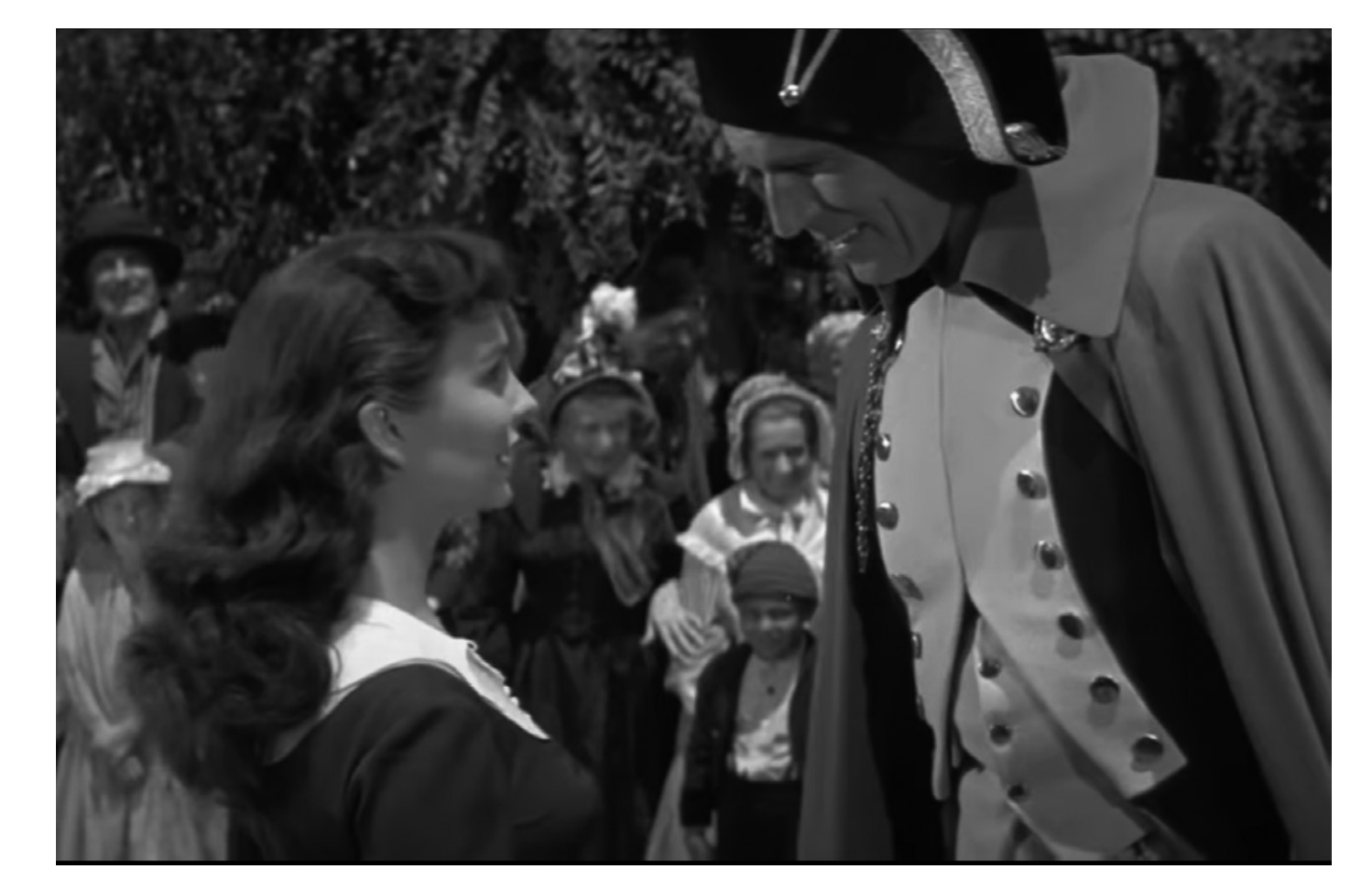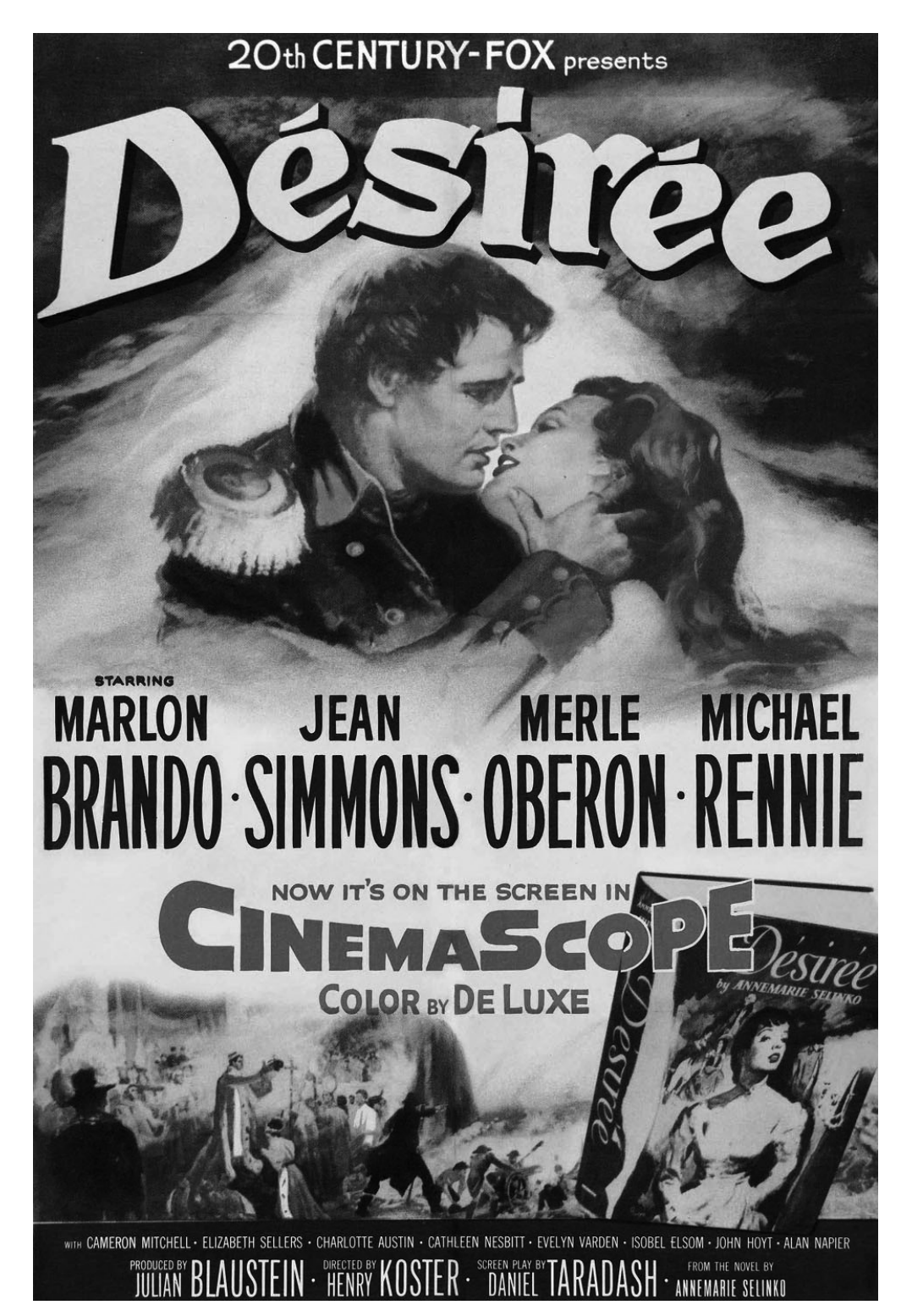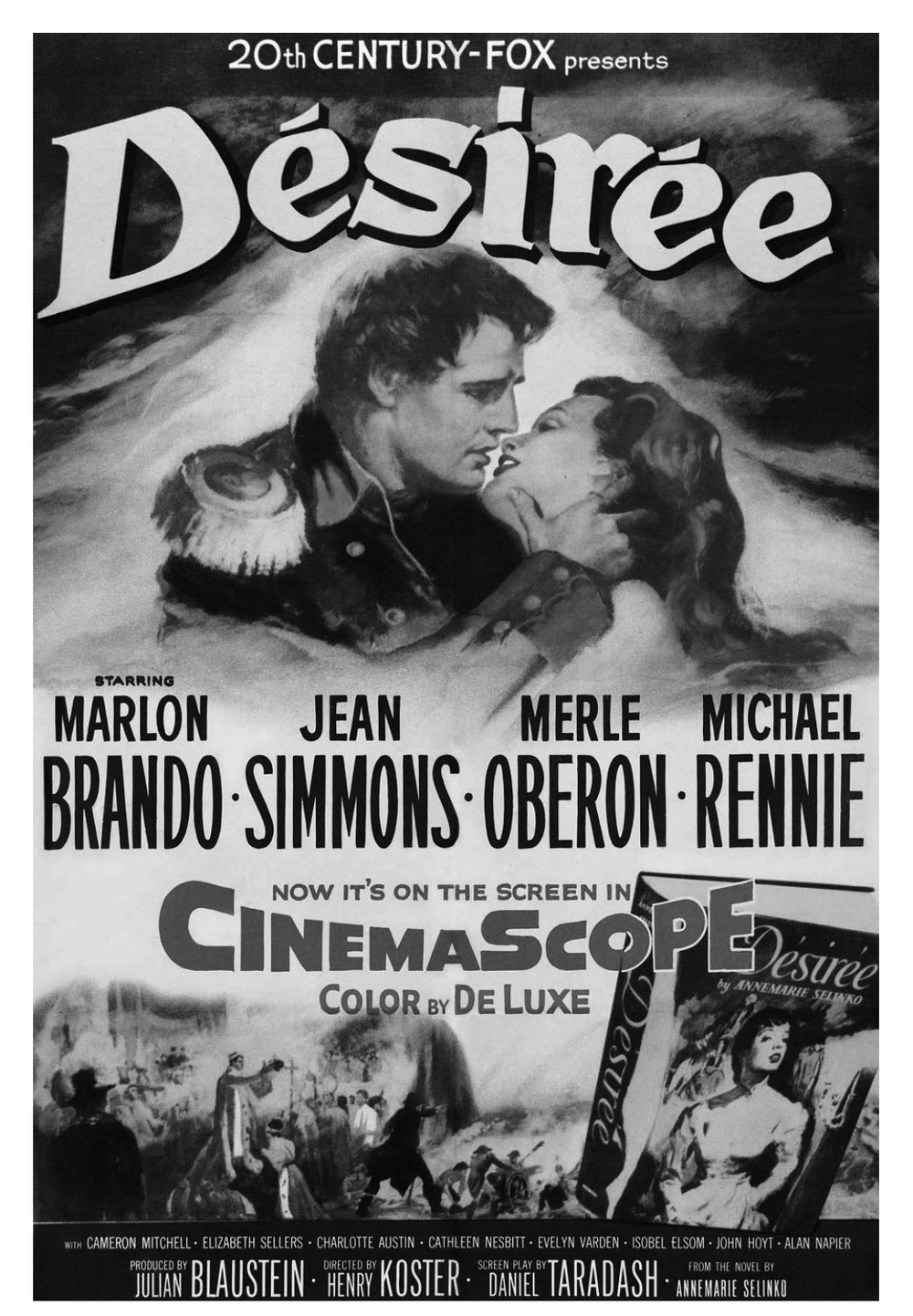Film Review: Désirée
by Vic Neptune
Napoleon Bonaparte (1769-1821) has exerted a fascination for two centuries and more. Even this year, Ridley Scott has a film coming out about the Corsican French emperor and conqueror starring Joaquin Phoenix. There are those who admire Bonaparte from a military standpoint; his victories on the battlefield were numerous, although his defeats, such as his disastrous invasion of Russia and his final battle at Waterloo in 1815, hint at the man’s chief flaw: pride contaminated with an arrogance stemming from his own belief in the majesty of his greatness. This is the man who, during his coronation as Emperor, crowned himself, an unthinkable act which caused a previously admiring Beethoven to change the name of his Third Napoleon-dedicated Symphony to Eroica (Heroic).
This scene from real life, depicted in Henry Koster’s 1954 film, Désirée, provokes a gasp from the title character (played by Jean Simmons): “He’s crowned himself!”
Based on the life of Désirée Clary (1777-1860) and on a novel by Annemarie Selinko, the film takes the angle of big events happening in the background of her life, starting with her first meeting young General Bonaparte (Marlon Brando) in Marseilles after his victory at Toulon, during a time when people in France were still being guillotined. Supremely confident even then, he speaks of an upcoming Italian Campaign, bestows upon her her first kiss, asking her to marry him soon after. Just four months later he’s involved with Joséphine de Beauharnais (Merle Oberon). Désirée travels to Paris, gets into a salon by asking a military officer, Jean-Baptiste Bernadotte (Michael Rennie), to accompany her. Finding Napoleon with another woman, she throws a glass of champagne at her dress and runs out, followed by Bernadotte, who finds himself smitten by her in the way of sudden Hollywood love, I suppose. They later marry.

Voiceovers accompanying Désirée’s diary entries cover a string of events: Napoleon’s Egyptian campaign, his divorce from Joséphine and marriage to an Austrian princess for the Henry the Eighth-style sake of generating a male heir. Though Napoleon left Désirée in the lurch a long time ago, he always finds her interesting enough to exert his authority over her, demanding for instance that she teach him how to waltz accompanied by a music box owned by Marie Antoinette. Though the real Désirée and her sister, who married Napoleon’s brother Joseph, were involved in some of the intimate domestic details of the extended Bonaparte family, I don’t know to what extent she had to do with Napoleon’s life as is depicted in the film.
The romance side of things vies with the historical Bonaparte and his military conquests, his ambition to unite Europe into one state--ruled, of course, by him. In a biography I read years ago I learned that he had plans to conquer Persia and India, dreamed of conquering America; in short, he was perhaps the most dangerous maniac who ever lived up to that time, or so I regard him. In the film, Marlon Brando does a fairly good job depicting such humorless moments in the Emperor’s days, believing in the strength of his convictions, willing to waste thousands upon thousands of men, his own and those of his enemies, to accomplish something he was very good at: acquiring territory and putting it under French rule, often with his relatives acting as viceroys.
The film counters these despotic ravages centered in the mind of this man who sculpted Europe with the edge of a bayonet, with sumptuous costumes, balls, subordinate aristocratic-type men and women bowing and curtseying to the former Corsican artillery officer turned ruler of a continent. Jean Simmons in the title role finds herself supporting her husband, Bernadotte, over Napoleon, traveling with him to Sweden when Bernadotte is offered the position of Heir to the Swedish Crown, making Désirée a princess, but one having to adapt to a foreign and cold land she ends up hating, causing her to return to Paris just in time to receive in her house Napoleon, freshly returned from his colossal disaster in Russia. The 1812 Campaign against Russia is one of the most astonishing and horrifying military adventures ever attempted.
After Waterloo, Désirée once again brushes close to a history I’m not sure she had anything to do with, but in the film it’s an effective scene as she goes to Napoleon for a final talk and convinces him to surrender rather than use his remaining loyal men to raise havoc in a last stand. He gives her his sword, asks her not to hold it like it’s an umbrella, and watches her walk away into her own history which led her to become Queen of Sweden, while he was sent to the remote South Atlantic island of Saint Helena where he died six years later.
I watched the film because I enjoy seeing how Napoleon is depicted by various directors, writers, and actors. Désirée was an early Cinemascope production, a wide screen method that changed the movies. Henry Koster, the director, made the first Cinemascope film to be released, the Biblical epic (also with Jean Simmons), The Robe. The screen dimensions represented a new way to make compositions but also brought about new challenges for making camera movements. Henry Koster can be regarded as a pioneer in widescreen cinematography and filmmaking, and here he did a good job with combining historical sources with fictional extrapolations in an essentially romantic film wrapped around an era of bloody convulsions in a Europe transforming into a new configuration, leading ultimately to the twentieth century’s own problems.





